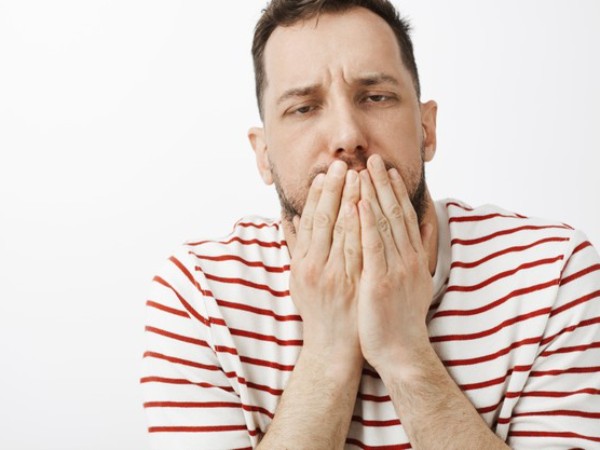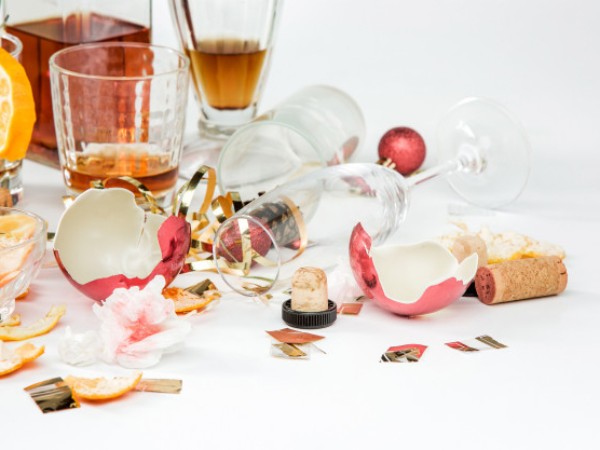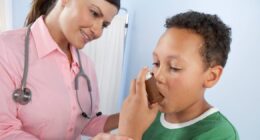
Myth 1: Just A Couple Of Drinks Won’t Give A Hangover
False. Simply because you had only one or two drinks, it doesn’t mean you may not get a headache/hangover the next morning. Having even a couple of drinks can trigger headaches and other hangover symptoms for some people [2].
You can avoid this by drinking water or any non-alcoholic drink with less sugar, as it will help keep you hydrated.
Myth 2: Hangovers Don’t See Gender
False. Hangovers are gender-specific, that is, if a man and a woman drink the same amount, the woman is more likely to feel the effects. As men have more water content in their body, it helps dilute the alcohol within the body, reducing the impact [3]. For women, the alcohol directly gets into the bloodstream, having more of an impact comparatively.
Myth 3: Wine Will Not Give A Hangover
False. Red wine contains tannins, compounds known to trigger headaches (in some people) [4]. Beer and clear liquor such as gin and vodka are comparatively gentle and may not give a hangover (if you drink responsibly).
Myth 4: Alcohol Helps You Sleep Well
False. While it can make you fall asleep, the sleep quality gets completely disturbed by the alcohol in your system. It disrupts your REM cycle and causes you to wake up too soon/in the middle of the night, where you are most likely to get a hangover and make it difficult to fall back asleep [5].
Myth 5: Herbal Remedies Can Help Cure A Hangover
Somewhat True. According to studies, certain home remedies such as apple cider vinegar, B vitamins and some supplements can help treat hangover symptoms such as nausea, headache, dry mouth etc. [6]. However, the best cure is time.
 10 Science-backed Hangover Remedies For You
10 Science-backed Hangover Remedies For You

Myth 6: Diet Drinks Will Reduce Chances Of A Hangover
False. Mixing your alcohol with diet drinks will not help reduce the risk of having a hangover the next morning. According to studies, having fruits, fruit juices, or other (limited) sugar-containing liquids can make for a less intense hangover [7].
Myth 7: Always Drink Liquor Before Beer To Avoid A Hangover
False. It does not really work that way because it is not about the order of the drinks. Still, the amount of alcohol you consume decides the possibility (or severity) of a hangover.
Myth 8: Eating Pasta Before Bed Can Help Avoid A Hangover
False. Eating after you are drunk will not help you in any way [8]. Although food can slow down how fast your body absorbs alcohol, eating carbs to down a hangover is not beneficial to anyone. Try eating a steak or any other fatty food that may help you avoid a hangover the next morning.
 8 Ways To Make Your Coffee Healthy
8 Ways To Make Your Coffee Healthy
READ RELATED: How the World Health Organisation failed Australia on coronavirus
Myth 9: Coffee Is The Ultimate Hangover Cure
False. Surprised? Be it movies or books, we have seen people downing coffee to get rid of a hangover and go about their businesses. Studies point out that caffeine can narrow your blood vessels and make your hangover worse [9][10]. Instead of sipping on a cup of coffee, drink water before bed to prevent dehydration and replace lost electrolytes (if you had thrown up).
Myth 10: Popping Pain Relievers Before Bed Can Avert A Hangover
False (somewhat). As studies point out, pain killers peak in about four hours, so popping one before bed will not help you in the morning (when you wake up). So, it is best to take a pain killer once you get up in the morning.
Caution: Avoid acetaminophen or Tylenol after a night of drinking as the combination could hurt your liver [11].

Myth 11: Drink In The Morning To Skip A Hangover
False on all levels. Doctors advise that drinking in the morning does nothing but postpone a hangover and not avoid one [12].
Myth 12: Alcohol Poisoning Is Not Real
False. Alcohol poisoning is a very real and life-threatening emergency. The most common symptoms include confusion, stupor, vomiting, seizures, slow and irregular breathing, low body temperature and bluish skin [13]. Suppose one vomits multiple times or pass out after drinking heavily. In that case, there is a risk of severe dehydration or brain damage, so it is important to get immediate medical help [14].
Myth 13: Hangovers Are NO Big Deal!
False on all accounts. Being hungover is not an aesthetic of your party life and should not be ignored. Hangovers result from the chemicals in your brain being impacted by alcohol, resulting in dizziness and nausea – that causes a splitting headache and fatigue, cottonmouth, queasy stomach, and a weakened immune system [15].

According To Experts, Here’s How You Can Manage A Bad Hangover
To avoid recurrence of hangovers, keep track of what you are drinking and stay within the low-risk drinking guidelines by not regularly drink more than 14 units of alcohol per week.
If you choose to drink as much as this, it is best to spread your drinking evenly over three or more days and take breaks in between, such as Drink Free Monday or so.
 Acupressure For Bloating, Gas, Constipation And Stomach Pain
Acupressure For Bloating, Gas, Constipation And Stomach Pain
Drink plenty of water or soft drinks in between alcoholic drinks to avoid dehydration. Also, drink plenty of water before hitting the sack and keep more by the bed.

On A Final Note…
Roughly, it can take 8 to 24 hours for the symptoms of a hangover to disappear. With symptoms that include headache, nausea, dizziness, thirst, and sensitivity to light or sound, hangovers can feel like a heavy price to pay the morning after a night of heavy drinking.
Hangover symptoms are mainly due to dehydration (because of the diuretic effect of alcohol- loss of water and minerals), low blood sugar, dilated blood vessels, electrolyte imbalance etc.
Source:



 Headache 101: Everything You Need To Know From Causes, Symptoms To Home Remedies, Foods, Yoga Poses And More
Headache 101: Everything You Need To Know From Causes, Symptoms To Home Remedies, Foods, Yoga Poses And More





